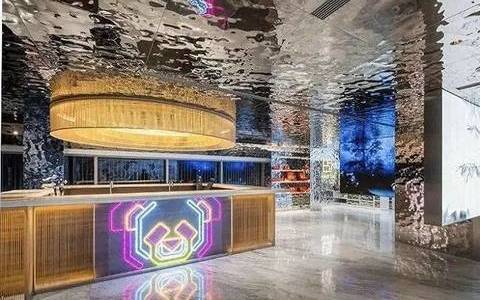▲Click “FBIF食品饮料创新” inblueto follow
Reply number “3″to join in F&B WeChat Group
Written by:Lisa Jiang, Iris Huang
Edited by:Wilbur Zhu(WeChat ID: aotokuer),Anna HU, HaileeBu, Olivia Huang, IrisZang,Hestia Zhang
The global economy suffered ups and downs last year. Innovation is arising in science and technology fields, Internet Plus, genetic engineering and artificial intelligence. There has been keen competition in capital market. From last year’s G20 Summit to President Xi’s keynote speech at WEF in Davos this year, all these milestones are changing people’s lives.
Leo Xie, Regional President APAC, DSM Food Specialties;David Wang, CEO, Mercury Holding Co., Ltd;Aalt Dijkhuizen, President, Dutch Topsector Agri & Food and Former President, Wageningen University;Stephen Maher, President, Mondelez China; Zhou Li, Secretary of the Board,Ph.D, Nongfu Spring (from left to right)
As the world changes, where should the food industry go? On Apr.19, 2017,we welcomed Leo Xie, Regional President APAC, DSM Food Specialties; Aalt Dijkhuizen, President, Dutch Topsector Agri& Food and Former President, Wageningen University; Zhou Li, Secretary of the Board, Ph.D, Nongfu Spring; Stephen Maher, President, Mondelez China and David Wang, CEO, Mercury Holding Co., Ltd to attend Food & Beverage Innovation Forum 2017 (FBIF 2017) and discuss the growth direction of food industry under economic pressure.
Where Does Global Economy Go and How Could the Food Industry Develop?
Globalization may oscillate in a short period, and will continue in the long run. Food industry might be a pushing force and benefit from itthis way.
Moderator Leo Xie: How will the global economy develop? What influence will it have on food industry?
Aalt Dijkhuizen: Globalization will continue. Ten years ago, who could predict that China would be pushing globalization forward today? And now America is going the other way around. Time and politics both change.Consumers are going global, and will go further with the appearance of E-Commerce. Food industry itself is quite globalized already.Netherlands is the second largest export country in agriculture. 70% of its food goes out and it is increasingly globalizing. Globalization may adjust its pace in a short time. Food industry might be a pushing force and benefit from it in this way.
Long-term Benefits and Short-term Concerns
Consumption upgrade brings opportunities and challenges.
Zhou Li: To discuss this topic, we must first consider consumption upgrade. In the past three years, consumption market is upgrading at a rapid pace. Some companies have felt pressure, some have benefited from it. Nongfu Spring is one of the beneficiaries.
Nongfu Spring has had a fairly high share in first-tier market, but has just reached the first place in the global market in recent years. We felt worried, why couldn’t such a good brand dig into the large rural market? Today, however, the communication among different channels is getting easier. We are in time for this era.That means, you might be suffering in a short period, but you’ll be the winner in the long run.
Apart from fulfilling consumer demand, we need to create surprises.
Zhou Li: Nowadays consumers’ needs are more and more individualized. We have come to the New Retail Era, from B2B to B2C. Take traditional Chinese medical care as an example. People still like to turn to traditional Chinese doctors for help because their theory is to figure out solutions according to individual needs. I feel positive about future establishment in such fields as healthcare products and energy drinks. With the development of Internet, it is easier for us to acquire data about consumers, thus easier to feedback and reply. That also means, of course, higher requirements for product quality, flexible manufacturing and quick response.
Apart from consumers’ demand, we can also bring surprises to them. Beverage production is standardized and intensive. It is a huge challenge for us to face the changes, but we can create surprises in other ways. For products like juice, tea and water, consumers expect them to be of high-quality, healthy and interesting. An experienced enterprise can make use of its experience and industrial integration ability. For instance, Nongfu Spring once made a special edition according to the twelve Chinese Zodiac. Consumers didn’t think it was special at the beginning, but actually felt quite surprised when they received it.What does a surprise bring? It brings sharing.If a great number of consumers would like to share, we can reach a lot more people.
Where Does the Difference Between the Innovation of International Brands and Domestic Ones?
The gap between domestic and international products is narrowing. Globalization is still going on. FMCG industry will focus on developing the low-tier cities.
Stephen Maher: Back in the 1990s, international products were quite different from Chinese ones. In the last 20 years, however, Chinese products have started to make progress in development, quality, standard and innovation.The gap is narrowing.
Greek Yogurt “Ambrosial”, a successful imported goods from Europe, is the fastest-growing product of Yili Group. Besides, some Chinese enterprises have also successfully taken their products overseas. Such products innovation is bound to take place and will push the development of FMCG globalization.
Someone has argued that Chinese people have a different taste. I’m not totally against the idea, but we need to look at it in various ways. For example, our marketing for Oreo cookies has not reached low-tier cities, where consumers might not even be able to see the product; unlike first- and second-tier cities, where we have a fairly high market share.
In addition, distribution in some small cities is usually led by local companies. Consumers can see local brands when they enter the stores, but fail to try international products. Therefore, it’s not that Chinese people have a different taste, but rather that FMCG enterprises’ ability are too limited to penetrated those cities. That is where we are working on.
How can Chinese brands go global?
For Chinese brands to go global, quality and insistence are indispensable.
David Wang: The name of “Mercury Holding”was decided in 2015, but we’ve already begun producing the traditional European cuisine Foie Gras 27 years ago. Whether China can have an international brand has always been our major concern.What exactly is the pursuit of an enterprise? Quality. And Quality means insistence.It is no easy task for us to keep on producing a traditional European cuisine, but we hope that Chinese brands can emerge on world stage to deal with the relationship between brand and fame.
People have asked me if I’ve had a second thought or regret after all these years. Not at all. There’s no regret in presenting Chinese brands on world stage. Someone says our products are too expensive, but price is the only drawback to it, apart from which it has nothing but strengths. Of course it’s a large topic, I would just like to cut it short. But if something is cheap in price, then being cheap will be its only advantage. That’s what I want to point out to China, especially to companies who make Foie Gras like us.Brand has nothing to do with value.With good quality, Chinese Foie Gras can also go global.
To win the overseas market, we must first make money and run volume in domestic markets.
Stephen Maher: China has great superiority in quantity. Thirty years ago, foreign companies brought western products into Chinese market. Today, we apply the same model as we go out. First of all, we need to run volume in domestic markets and make money before going overseas. Secondly, FMCG companies must invest in Latin America and Europe to globalize. Investment needs capital, raising price in America and Europe may lead to a drop in market share.In fact, the expansion of developing countries relies on subsidies from domestic and western markets. Price rise in Chinese market will erode profits, we must run volume here.
Besides, China has one huge advantage. In 1990, when I first came to China, I was working for P&G. At that time, when no foreigners would come to work in China, I did. Thirty years have passed and now everyone dreams of working in China. I suggest that Chinese companies recruit some foreigners who can speak Chinese and are willing to enter the market. Let them join and get to know the company right after graduation.
Innovation Concept – How to Achieve More Output with Less Input?
To achieve more output with less input, we need to focus on management and new technology, to emphasize on quality check.
Aalt Dijkhuizen: Now that global market has a higher demand for food, production increase 40% to 70%, it requires less input and more output. We need to take this into consideration while making innovation.Management is of utmost importance; management needs people. And then follows new technology. We are in the age of intelligence and information. We have numerous opportunities in the future.
What can’t be ignored is that the challenge we are going to face might be bigger. As the demand for food increases, larger production in some category or market can lead to higher price elasticity. Increase in production means decrease in price. If people need more high-quality food, we will raise the price as well. Therefore, from the quality perspective, we can ask for more output with less input.
Globalization Is Unstoppable – Dutch Agricultural and Sideline Products Walk into Chinese Families
From global purchase to global consumption, worldwide products are providing service through E-business platforms.
Aalt Dijkhuizen: Today we no longer differentiate between Dutch companies and Chinese ones. Emergent consumers are able to buy products from around the world. China has great E-business platforms such as Alibaba, who are changing the world and help worldwide products provide service to consumers through those platforms.
Last August, we opened an online store to sell Dutch product, connecting Chinese consumers and Dutch producers.From global purchase to global consumption – that is the future.
New Normal, New Retail – What Changes Will They Bring?
New standard for globalization: Be the lead or be Nobody!
Zhou Li: Channel innovation brings new opportunities to industry development. The boundary between second- and third-tier markets was relatively clear before and that created a large trade barrier.Channel innovation also means new chances for communication, sharing information becomes easier.
Globalization back to twenty years ago meant that we could buy the best machines from Germany or Japan. But today the trend is: First,resource globalization.We can make use of the best resources in the world, buy cherries from Brazil, and buy fruits from places of origin. Second,talent globalization. We can hire the best designers in the world. Our Natural Mineral Water in glass bottle, which had taken designers from five countries to draw more than 300 drafts in five years, won five top international design awards last year.In today’s globalization, you can either be the lead, or be nobody!
What’s your opinion on post-90s planning FBIF? What do you think of the Millennials?
No matter which generation they are, quality comes first when they run a business. In front of millennial consumers, transnational companies still have a long way to go.
David Wang: I am a post-60. It is not surprising that post-90s are undertaking FBIF. After all, blue from indigo plant is deeper than its origin. However, in terms of quality, there’s no difference.The true orientation of consumption lies in quality.No matter which generation they are, I hope they can put quality first. We consider for our consumers in all aspects. They don’t need to worry at all, and that is safety. Nowadays the post-00s have some doubts about our food, hopefully this phenomenon will vanish away.
Stephen Maher: It is a unique historical era. For me, the biggest puzzle is where to invest our money. Managers from 20th Century hope to sell to both the older and the younger generation. For example, mothers used to buy three or four packets of Oreo cookies. Their children might open the cupboard and eat them after school. This pattern has been applied for thirty or forty years. My son is also the millennial generation, he won’t turn to Oreo when he’s hungry, but rather order some noodles using WeChat. 15 Yuan including home delivery, and it’s still warm. Now that we’ve come to the digital era, it’s not only about numbers, but also mobility.To find our position in the emergent economic entity, we must realize mobile sales.
In the past forty years, transnational FMCG industry has been run by westerners. But the next generation of leaders in those companies will be Chinese. China will export more FMCG, which is a huge opportunity.It’s not only about exporting products, but also exporting consumption and ideas.We have all heard of Facebook and LinkedIn, but Tencent and Alibaba are China’s own Facebook. They’ve created an eco-system, put media and E-business together and integrated resources. Alibaba might well be world’s third or fourth largest economic entity in the future. Once globalized, it could have two billion online shoppers. We transnational enterprises have not truly embraced the millennials yet. This will be a challenge for us.
Messages from FBIF:
Aalt Dijkhuizen: Nowadays in China, food industry is developing rapidly. Thanks to the Millennials. We attach great importance to the millennials and new technology. We have good reason to believe that food industry will get even better in the future.
Zhou Li: Chinese consumer market is temporarily faced with difficulties, but we still need to have faith. For our industry, while older people don’t drink beverages, post-80s, -90s and -00s do, and will always do even when they grow older. We have a large market, rest assured.
David Wang: The standard for any kind of consumption is quality. True innovation lies in the continuous upgrade in quality. Innovation has two patterns. One of it is for us to adjust to the market. The only thing that remains is the quality. Consumers don’t have to worry about safety problems. The form is changing, be it consumption form or purchase form. Especially with the emergence of the Internet, quite a few forms are unpredictable. But it’s the pattern that changes, quality will never change. Thank you!
Food & Beverage Innovation Forum 2017(FBIF2017) was held in Shanghai from April 19th to 21st, 2017. The theme of FBIF2017 is“Global Innovation, Powering Future!”.Topics include Trends, R&D, Marketing and Packaging. 1500+ attended. Speakers include:Zhang Jianqiu, Executive President, Yili Group;Stephen Maher, President, Mondelez China;Zhou Li, Secretary of the Board, Ph.D, Nongfu Spring;Yan Weibin, Chairman, Ausnutria;Craig Slavtcheff, Global VP, R&D, Campbell Soup;Zhang Liaoyuan, Founder, Three Squirrels;Jet Jing, VP, Alibaba Group;Martin Suter, Head of eCommerce, China at AB InBev.For more please reply “FBIF” . / Tips / Click the Menu “FBIF” to view “Agenda“, “Speakers“, “Partners” and other On Site Activities Reply “attendee“, “photo“, “news” to get related information. For other key words, pls reply “keywords“ / Read More/ Exclusive | Doctor Aalt Talks about the Future of Food Industry The “Three-three Principle” Helps Yili’s Innovation Stand Still Exclusive | Tencent Reshapes FMCG Marketing with 3 Moves How F&B Firms can Drive Sales to Millennial Consumers? Share a Coke: How the Groundbreaking Campaign Got Its Start /WeChat Groups / Long Press this QR Code to follow“FBIF“. Reply number “3” to join inCEO,R&D,Marketing,Packaging,Functional Foods,Dairy,Beverage,Snacks, etc. WeChat groups(Group members include seniors from Nestle, Coca-Cola, PepsiCo, AB-InBev, Yili, Mengniu, Master Kong and Nongfu Spring etc.) ▲follow us and”Sticky On Top”
原创文章,作者:网络转载,如若转载,请注明出处:https://www.qiyu88.com/188507.html















